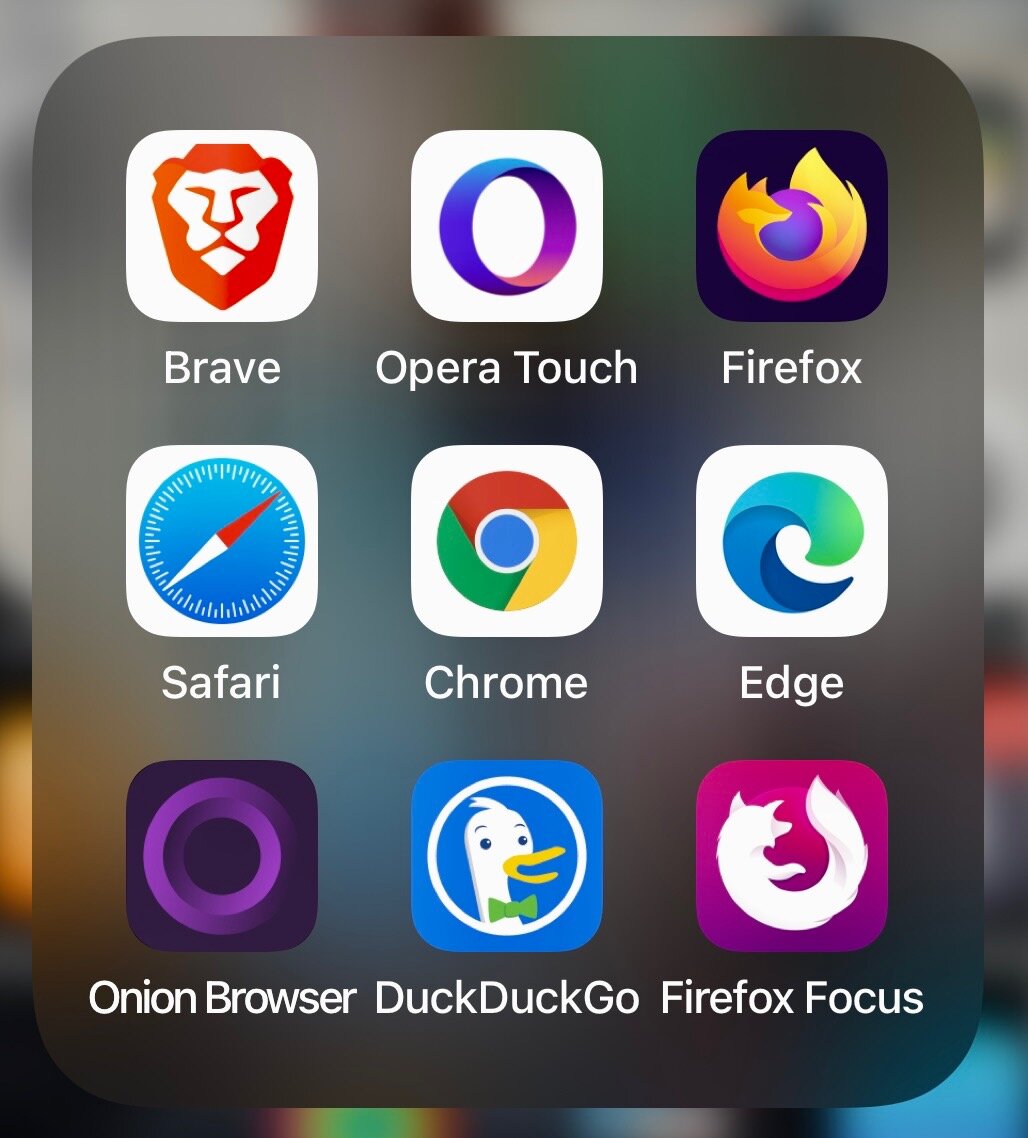Choosing A Web Browser
The web browser is likely the most used application on your computer. In fact, many people have switched from a standard Windows or MacOS computer to a Chromebook which has one application, the Chrome web browser. With so much computing being done in a web browser these days, we are sharing some tips for choosing a web browser.
Browsers
This article is not going to compare and contrast each browser; if you’re looking for that, here is a good review of the top four cross-platform browsers. We will however address some of the basic security and privacy considerations when choosing a browser.
Cross-Platform
The first thing you want to consider when choosing a browser is whether it works on all of your devices. Sure, you can run Edge on your PC, Safari on your iPad and Chrome on your Android phone, but if you do that, you lose the ability to port your bookmarks and browsing history between those devices.
If you want that portability, you should consider Chrome, Firefox, Opera or Brave. If you don’t use Linux, then Edge is also an option, as you can see below.
Popularity
Statistically, it’s very likely that you use Google’s Chrome browser. The top 5 most popular web browsers according the the monthly w3schools.com report for August 2020 are:
These statistics represent a breakdown of the more than 60 million monthly visits to w3schools.com but does not represent use across the entire Internet. Looking at other statistic sites, we see a similar story. Statcounter even has an interactive chart that lets you choose results by platforms, regions and year.
Security & Privacy
It didn’t matter which statistics site I checked, they all seem to show that Chrome is by far the most popular browser in the world. But popularity doesn’t equal security and privacy. Below you can see a comparison by Mozilla, of security and privacy features of the most popular browsers.
Security and privacy are obviously important considerations when using any technology. Some people choose a browser based on their personal or professional ecosystem. If you use all Apple devices, you probably use Safari because it is the default browser on those devices. If you have a PC, you likely use Edge or IE, and Android devices use Chrome as the default. But should the default be the reason we use a tool? Probably not. And as stated earlier, popularity does not equal security and privacy. So in addition to the top five most popular browsers, below are two more that were made specifically with privacy and security in mind.
Brave is built for privacy. They claim that the Brave browser is “Three times faster than Chrome. Better privacy by default than Firefox. Uses 35% less battery on mobile.” Check out their page for more details on the security and privacy features you won’t find in other browsers.
Tor - Tor is very privacy and anonymity-focused but there are two general downfalls with Tor.
Because of the level of anonymity it provides, it has a reputation of being used by nefarious threat actors so you may find that it’s use is blocked in some companies, schools and organizations.
It jumps through a lot of hoops to add anonymity but that can also slow things down a bit. So, unless you really need anonymity, I don’t think Tor is worth the trade-off.
Work & Personal Use
If you have a powerful enough computer, you may want to consider using different browsers for different purposes. For example, one browser for work, another one for school, and another one for personal use. This way you are using the browsers that best support your online applications and you add additional security and privacy by using different applications for different purposes. An example is shown below.
After installing and using all of these browsers, I found them all to be very easy to use and convenient. I personally tend to use Chrome for Google stuff, like Gmail, Google Maps, and Google docs and use Firefox for most other things. However, after kicking the tires on all of these browsers, I am now, for a trial basis, using both Brave and Opera. So far, I really like using different browsers for different tasks.
Mobile Browsers
With a powerful computer in almost everyone’s pocket, we must touch on (pun intended) the mobile browser. Both iOS and Android support most of the major browsers as you saw in the table above. While they don’t have the full functionality of a desktop browser, most sites these days serve up a different page if you are on a mobile browser to accommodate for the smaller screen. The choice of mobile browser is again something that each person has to decide for themselves. After trying them all, I found that they each have their own attractive features and I didn’t have any real issues with any of them.
You can see below that there is a DuckDuckGo browser. While DuckDuckGo is a privacy-supporting search engine, they also have a browser for iOS and Android. It’s a decent browser but I prefer to add DuckDuckGo as my default search engine in one of the more robust browsers.
Another item of interest in the image below, is Firefox Focus. This is a privacy-enabled browser that works much like Brave in that it has ad-blocking and privacy settings enabled by default and it is available on both iOS and Android.
For now, I have changed my default iOS browser to Brave. That’s right, with iOS 14, you can finally change your default browser to something other than Safari. Below are instructions on how to make that change.
First, you have to download another browser or browsers. Next, go to Settings > Safari > Default Browser App and tap on the browser that you want to use as your default. You can always use other browsers, but this is the browser that will open when you tap on links.
Gaming Browser
If you like online gaming you may want to try the Opera GX gaming browser. OperaGX for Windows and Mac, claims to be the first gaming browser. “One of the features of Opera GX is Network Bandwidth Limited with RAM Limiters and CPU Limiters which allows the browser to utilize fewer resources, dropping them for running games” reports ygadgetguru. It also has Twitch built right into the browser to easily follow your favorite streaming gamer.









